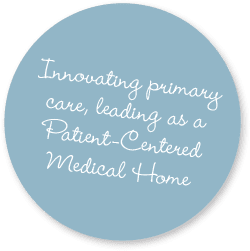Fresh, unprocessed, whole foods are great sources of vitamins, minerals, and other beneficial nutrients your body needs—think vegetables straight from the garden, hand-picked fruit, and locally raised meat and dairy products. Fortunately in Maine, there are many ways you access fresh, local food to incorporate into your diet that’s not only healthy for you, but healthy for our local community.
Ways to Find Fresh, Local Food in Maine
Community-supported agriculture (CSA) is a system in which a farmer offers shares of their harvest in exchange for money at the beginning of the season, either paid in full or through partial payments. This model helps the farmer pay for early expenses while ensuring the CSA member has food at regular intervals (usually weekly). Many CSA farms offer vegetables and fruits, while some offer meat, dairy, eggs, grains, and more.
Find a CSA farm close to you.
Farmers markets are fun venues to socialize and find a ready supply of healthy, fresh food and Maine-made goods—especially in the spring and summer, when farm-fresh produce is in abundance.
In the early summer months of Maine, expect to find produce such as strawberries, salad greens, spring onions, zucchini, beets, cooking greens, broccoli, summer squash, sugar snap peas, snow peas, scallions, carrots, cucumbers, garlic scapes, fresh herbs, kohlrabi, radishes, salad turnips, microgreens, and fennel. Later in July, you can add blueberries and raspberries to that list, as well as corn, French beans, and new potatoes.
Find a farmers market near you.
Most farmers markets accept cash, local checks, credit cards, and SNAP/EBT funds, with the latter two options usually operating from a booth near the entrance. It’s simple and discreet to use SNAP/EBT funds at the farmers market, and many markets offer special bonuses to SNAP customers, such as Maine Harvest Bucks, that stretch SNAP dollars further. SNAP benefits and Maine Harvest Bucks can also be applied to a CSA share in many cases.
Low-income seniors may be eligible to participate in the Maine Senior FarmShare Program. Through this program, older adults receive fresh, local produce at no cost directly from local Maine farmers during the growing season.
Local Food: Healthy for You
You may have heard the advice to “eat the rainbow”—an easy-to-remember way to incorporate a wide variety of vegetables and fruit in your diet. By shopping at a farmers market or participating in a CSA share, you will naturally find a wide array of diverse offerings.
Have you ever tried eating kohlrabi? If garlic scapes come in your CSA box, what will you make with them? You may try something new—and like it! The many types of fruits and vegetables you’ll encounter will contribute to keeping you in good health by ensuring you are getting an assortment of vital nutrients and vitamins from local, fresh sources, and the newness keeps your diet interesting and your mind churning.
Choosing in-season produce from local farms assures you are getting the best nutrition for your dollar. Fruits and vegetables lose their nutritional value over time, so the sooner it’s eaten after it’s picked, the more nutrients can be gained. Local produce generally lasts longer in your fridge because it’s picked and sold promptly, compared to produce from away, which often travels more than a week before it reaches grocery store shelves—where it may sit even longer. Fresh fruits and vegetables also have a higher water content, making it a good source for hydration—which can particularly be an issue in hot summer weather.
Eating plenty of fresh fruits and vegetables is a substantial step forward for your health and wellbeing.
- Fruits and vegetables are rich in antioxidants, compounds that help fight free radicals, which are unstable molecules that can cause damage to your body’s cells
- Plant foods like vegetables, fruits, nuts, whole grains, and legumes can reduce your risk for diseases like cancer, heart disease, and diabetes; reduce your triglyceride levels; reduce blood sugar levels in people who have or are at risk for diabetes; increase your energy level; and promote gut health
Fresh, local fruits and veggies taste better. You’ll find more flavor, more complex notes in each bite. If you’re used to prepackaged meals and processed foods, it may take a short while for your taste buds to adjust. But once they do, processed food simply cannot compare in taste to what’s on offer at the farmers market.
A balanced diet heavy in fruits and veggies is high in fiber, which provides many positive health effects, including boosting digestive function, metabolic health, and feeling satiated. It’s good for your skin and it’s low in sugar. (Yes, fruit contains sugar, but it’s also high in water and fiber—not to mention other nutrients—so it is healthier than soda, juice, and processed foods.)
Local Food: Healthy for Our Community
Selecting local produce not only contributes to your health, but our community’s health as well. By shopping at the farmers market or belonging to a CSA, you are supporting local farms and businesses and keeping more dollars in our local community. This mutual exchange provides for a more vibrant local economy and a lasting economic impact in Maine.
Supporting local farms also means a smaller carbon footprint. The choice to eat local is a sustainable choice, because food is not trucked across the country or flown overseas before it reaches your plate. This reduction in energy needs helps our planet and our community all at once.
In addition to stopping by the farmers market or signing up for a CSA share, you may want to explore Maine farms and get to know your local farmer. Every summer, farmers from around the state participate in Maine’s Open Farm Day, welcoming visitors to learn more about their farms and to meet the farmers (and animals!). MOFGA’s Common Ground Country Fair is also a popular event full of local vendors, speakers and performances on all things agriculture.



